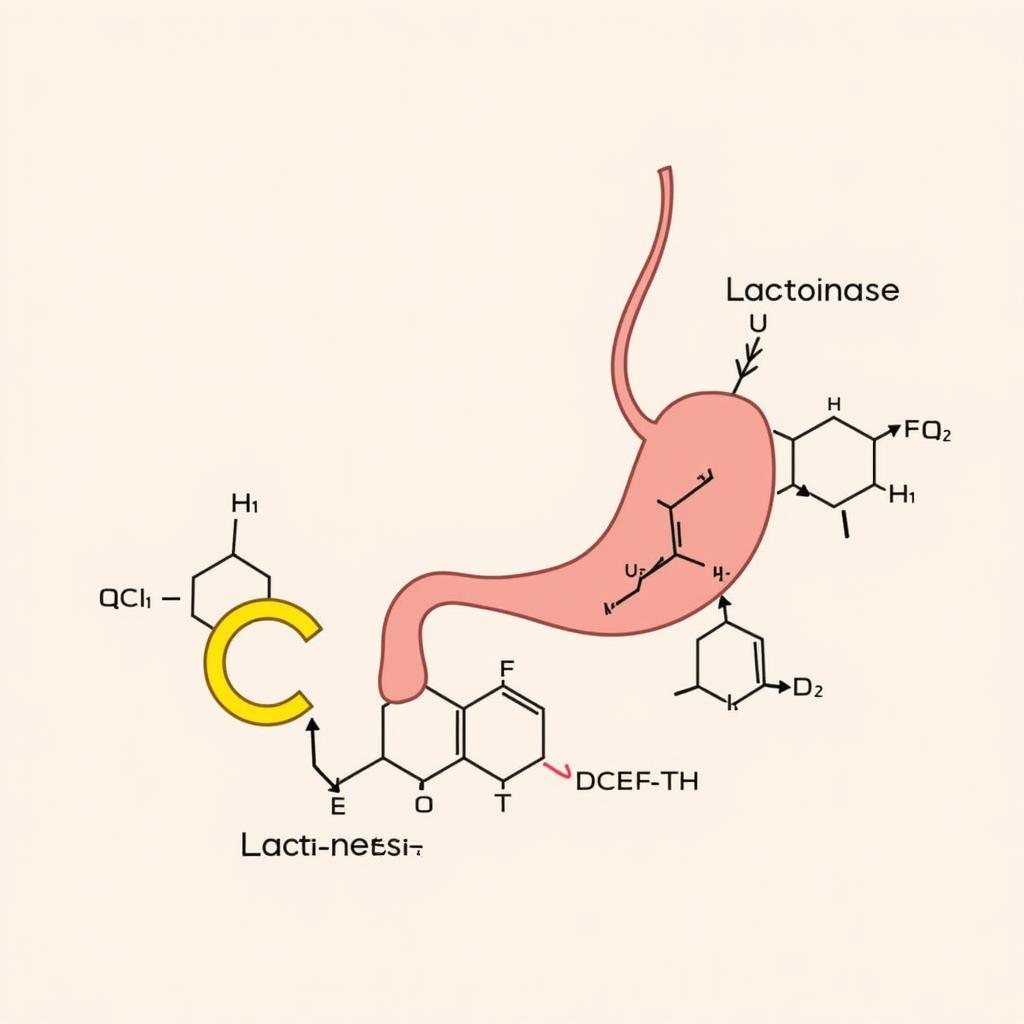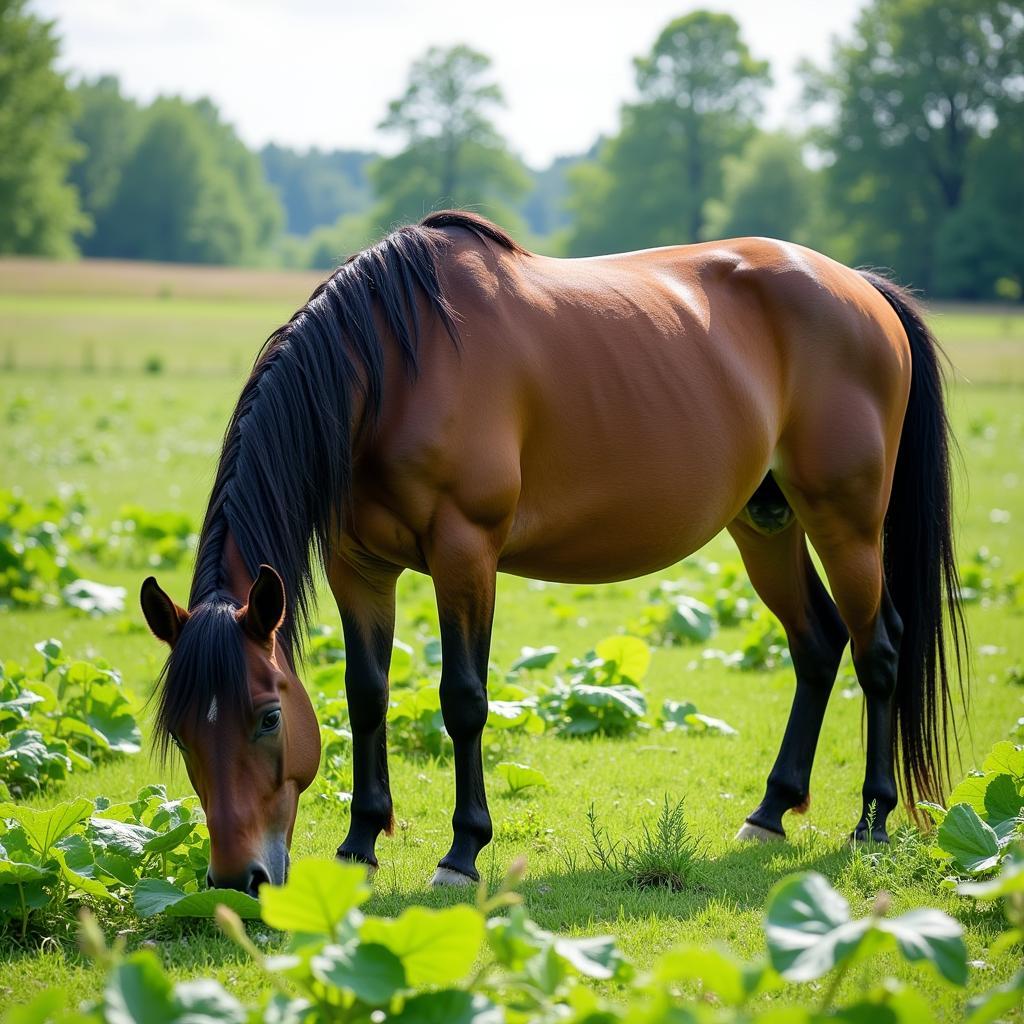Lactonase For Horses is an emerging area of research with potential implications for equine health and well-being. Understanding the role of lactonase in horses can help owners make informed decisions about their horse’s care. This article will delve into the science behind lactonase, its potential benefits, and what horse owners should know.
What is Lactonase and Why is it Important for Horses?
Lactonases are enzymes that break down lactones, cyclic esters that can be found in various plants and fungi. While research on lactonase in horses specifically is still in its early stages, studies in other mammals suggest several potential benefits. These include detoxification of certain plant toxins, modulation of inflammation, and potential impacts on gut health. Further research is needed to fully understand the specific roles of lactonase in horses and how these potential benefits can be maximized.
How Does Lactonase Work in Horses?
The precise mechanisms of lactonase action in horses are still under investigation. However, it is believed that these enzymes work by hydrolyzing the lactone ring, breaking it down into less toxic compounds that can be more easily eliminated from the body. This process can be crucial in protecting horses from the harmful effects of certain plant toxins that contain lactones. The efficiency of lactonase activity can vary depending on factors such as diet, age, and overall health.
Horses are exposed to a variety of plants in their environment, some of which contain potentially harmful lactones. Lactonase can help detoxify these compounds, preventing them from causing ill effects. More research is needed to identify specific plant toxins that are neutralized by lactonase in horses and to understand the extent of this protection.
 Lactonase Enzyme Action in Horses
Lactonase Enzyme Action in Horses
The Potential Benefits of Lactonase for Equine Health
Beyond detoxification, lactonase may also play a role in modulating inflammation in horses. Some studies suggest that lactonase can influence the production of inflammatory mediators, potentially contributing to the management of inflammatory conditions. This area of research holds promise for understanding how lactonase might contribute to overall equine health and performance.
Further investigation is also exploring the potential impact of lactonase on equine gut health. The gut microbiome plays a vital role in digestion and overall well-being, and lactonase activity may influence the composition and function of the gut microbiota. This is an exciting area of research with potential implications for optimizing equine nutrition and digestive health.
 Horse Grazing Pasture with Potential Lactone Exposure
Horse Grazing Pasture with Potential Lactone Exposure
Lactonase and Equine Nutrition
The impact of diet on lactonase activity in horses is an important area of ongoing research. It’s possible that certain dietary components may influence the production or activity of lactonase enzymes. Understanding these interactions could lead to the development of targeted nutritional strategies to optimize lactonase function and enhance equine health.
Future Directions in Lactonase Research for Horses
Future research on lactonase in horses will likely focus on several key areas. These include:
- Identifying specific lactones that affect horses and the efficiency of lactonase in neutralizing them.
- Determining the optimal levels of lactonase activity for equine health.
- Investigating the influence of diet and other factors on lactonase activity.
- Exploring the potential therapeutic applications of lactonase for various equine conditions.
Conclusion: Lactonase for Horses – An Emerging Field with Promising Potential
Lactonase research in horses is a rapidly evolving field. While much remains to be discovered, the potential benefits of lactonase for equine health are significant. As research progresses, we can expect to gain a deeper understanding of the role of lactonase in horses and how it can be leveraged to improve their overall well-being. Staying informed about the latest developments in this area can help horse owners make informed decisions about their horse’s care.
FAQ
- What are lactones? Lactones are cyclic esters found in various plants and fungi.
- How does lactonase protect horses? Lactonase breaks down potentially harmful lactones into less toxic compounds.
- What are the potential benefits of lactonase for horses? Potential benefits include detoxification, modulation of inflammation, and potential impacts on gut health.
- Is there a specific diet that can increase lactonase activity in horses? Research is ongoing to determine the impact of diet on lactonase activity.
- Where can I find more information about lactonase and horses? Stay tuned to Justus Horses USA for the latest updates on equine health and research.
- What are the common signs of lactone poisoning in horses? While lactone poisoning can manifest in various ways, some common signs might include digestive upset, colic-like symptoms, and changes in behavior.
- How can I test my horse’s lactonase levels? Currently, routine testing for lactonase levels in horses is not widely available. However, ongoing research may lead to the development of such tests in the future.
You might also be interested in reading these related articles on our website: “Equine Nutrition: A Guide to Feeding Your Horse” and “Common Plant Toxins for Horses.”
Need more help? Contact us! Phone: 0772127271, Email: [email protected] Or visit us at: QGM2+WX2, Vị Trung, Vị Thuỷ, Hậu Giang, Việt Nam. We have a 24/7 customer service team.